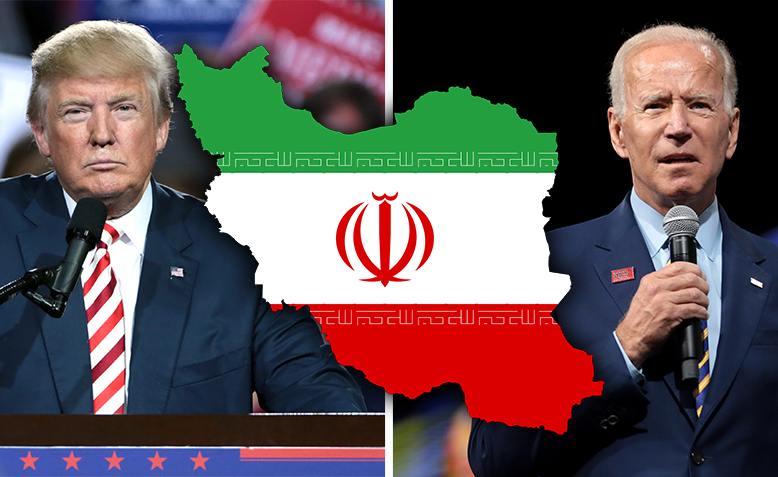Trump and Biden disagree in terms of foreign policy. One of the most prominent is the issue of Iran. Iran remains a dangerous actor and the world’s leading state sponsor of terror. Israeli agents found and shot al-Qaeda’s second highest leader on the streets of Tehran. Iran fuels proxy wars in the Middle East, fights to protect dictators, and props up other international outlaws with illicit trade. Iran launders money, takes hostages, and plots assassinations. Iran could become even more dangerous with the wrong set of circumstances. Fortunately, the Trump administration has handed Biden a better set of relations in the Middle East than the Obama administration handed Trump in 2016. We are closer to our allies, Saudi Arabia and Israel, against Iran, and Trump’s sanctions against Iran put the country through economic hardship. This weakened Iran and made the country more willing to cooperate for fear of worse sanctions. Trump called these sanctions “maximum pressure.”
Iran is less afraid of Biden, who promises to revive the Obama-era Iran Nuclear Deal. Mohammed-Hossein Koshvaght, a former official at the Ministry of Culture and Guidance sees that “today until Trump leaves the White House is the most dangerous period for Iran”. Trump’s sanctions left Iran desperate for relief, and Biden plans to lift sanctions in exchange for the nuclear non-proliferation agreement and “strict compliance”.
Problems with the Nuclear Deal
The problems sited with the nuclear deal include expiration dates on key restrictions, a lack of on-demand inspections of nuclear facilities, and the ability for Iran to maintain its nuclear enrichment capabilities. The agreement is accused of not addressing Iran’s accelerating missile program and giving Tehran the financial resources to sponsor regional aggression and terrorism. Iran also has the ability to cheat, calling supposed “strict compliance” into question. The International Atomic Energy Agency has evidence that Iran is concealing undeclared nuclear material, activities, and sites. Biden will also face difficulty getting Iran to return to compliance as Iranian officials are demanding compensation for sanctions that blocked the business that Iran was supposed to have under the deal, and returning without this compensation would be an uphill battle.

Biden has considered revising the deal, but he thinks he must go back to the old deal before creating a new framework. The problem is that the Iran Nuclear Deal would lift the most punishing sanctions and get rid of the economic leverage that the US currently has over Iran. Biden will, however, enforce “targeted” sanctions for Iran. Obama has credited the current sanctions with bringing Iran to the negotiating table.
Re-entering the agreement is also problematic in the sense that the UN restrictions on transferring arms came terminated in October 2020. The Trump administration issued an executive order threatening sanctions against Russia and China if they shipped weapons to Iran. If this executive order had not been signed, arms sales would already be underway. Biden has not said whether he would or would not enforce those sanctions.
Wendy Sherman
Biden has nominated Wendy Sherman as the Deputy Secretary of State and given her the task of reviving the nuclear deal. She was seen by some as weak on Iran and allowed sunset clauses in the previous agreement. This means that the Iran Nuclear Deal would have to be re-negotiated every so often.
Trump, Israel, and Saudi Arabia
Trump has supported Israel and Netanyahu in the continued annexation of Palestinian territory. Trump has played the role of the diplomat in helping the UAE and Bahrain establish full diplomatic relations with Israel. This has solidified Israel’s position in the region. Trump has also brokered deals and generally supported Crown Prince Mohammed bin Salman of Saudi Arabia. Saudi Arabia, in turn, has invested hundreds of billions of dollars in the US. Both Israel and Saudi Arabia are enemies of Iran’s, and Saudi Arabia has led the “fight against radical Islamic terrorism”. Biden wants to moderate the support of Netanyahu, weakening our alliance, as well as give Mohammed bin Salman a harder time. The US would lose such a strong foothold in the Middle East without the support of these two countries.
Islamic Revolutionary Guard Corps
There was bipartisan to label the Islamic Revolutionary Guard Corps as a terrorist organization, and Congress currently imposes sanctions against Iran for hosting them in the country. Trump ordered the drone strike that killed Qassem Soleimani, the then commander of the Islamic Revolutionary Guard Corps’ Quds Force. Soleimani was responsible for killing more than 600 American military personnel and many more innocent civilians across the Middle East. Thousands more were wounded under his orders. Soleimani directed a barrage of rocket attacks against the US Embassy Baghdad. Soleimani also helped Bashar al-Assad retain power in Syria. While he served, the Islamic Revolutionary Guards detained and murdered countless Iranian protestors. Biden has criticized the killing of this man. Only time will tell how even more differences are formed between Trump vs Biden Iran dealings.

